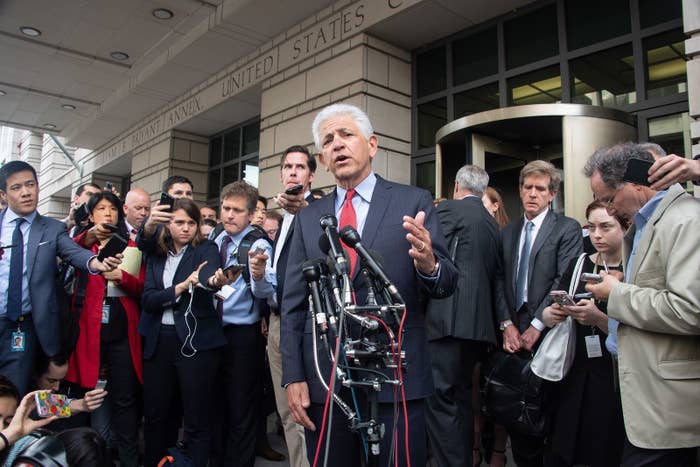
When a federal judge this week cleared AT&T’s $85 billion takeover of Time Warner, he urged that “the temptation by some to view this decision as being something more than a resolution of this specific case should be resisted.” But the consequences of his ruling will go well beyond one merger, and it has dealt a major setback to the growing movement seeking to check the economic and political power of Silicon Valley.
There are three clear consequences of District Court Judge Richard Leon’s ruling. First, it is now clear that the alleged need to compete with Big Tech will become the basis for a flood of media, technology, and telecommunications mergers in the works, with the judge repeatedly citing the threat of online players like Netflix and Amazon in explaining why AT&T needs to join forces with Time Warner, which owns flagship media brands like HBO and CNN.
The claim that the only way to compete with the giant tech monopolies is to form giant would-be monopolies of your own will be a talking point in big deals to come, such as the likely attempt to merge Sprint and T-Mobile. Indeed, on the day after this week’s ruling, Comcast announced a $65 billion bid for 21st Century Fox, explicitly citing the judge’s decision as a motivation for its announcement.
Second, the collection of massive amounts of consumer data for use in targeted advertising — as will be enabled by the fusion of a cable operator with media giant — has now been recognized as a kind of public good, enabling, in the judge’s view, a more competitive marketplace. At a time when there is a Facebook data collection scandal nearly every week, the fact that Judge Leon determined that the ability to collect more data from consumers would be a benefit of this merger is remarkable.
But perhaps the most damaging part of the ruling is that it embraces the legal status quo that has allowed corporate power to reach unprecedented levels, and thoroughly rejects an attempt to rethink the way antitrust law can be used to keep that power in check. Such a rethink has been one of the core demands of a growing movement, led by groups like the Open Markets Institute, which seeks to return antitrust law back to its roots as a constraint not only on anticompetitive conduct, but also on corporate power more broadly.
From the 1930s to the 1970s, the government frequently challenged and blocked so-called vertical mergers between companies that do not directly compete (such as a cable company and a content company). But conservative judges and their allies successfully worked to shift that focus, saying deals could only be blocked if they caused prices to rise or output to fall, and embracing vertical mergers for creating more efficient businesses. This shift has led to enormous consolidation across corporate America — in agriculture, pharmaceuticals, health care, and airlines as well as in telecommunications, technology, and media. Indeed, prior to the AT&T– Time Warner deal, no antitrust case had been brought against a vertical merger by the Department of Justice for 40 years.
Even though Judge Leon recognized the “lack of modern judicial precedent” for blocking vertical mergers, he ignored the increasing criticism of this relatively recent approach, and instead largely reaffirmed its vision. He didn’t merely declare that “academics, courts and antitrust enforcement authorities alike” agree that vertical mergers create more efficient companies — he also said he is inclined to agree with the argument that vertical mergers should always be permitted.
The judge urged us not to view his decision as an invitation to more giant corporate megamergers. But the decisiveness of his ruling will almost definitely scare off the Justice Department from future attempts to block takeovers. And it’s not just huge media conglomerates that will take advantage of this — the decision also gives a green light to vertical mergers in other industries, including allowing Silicon Valley giants to acquire more messaging, artificial intelligence, and data collection companies. For all of his talk about the power of companies like Netflix, Google, and Facebook, Judge Leon’s decision will allow those companies to become even bigger.
The biggest losers are American consumers and American democracy. With greater consolidation comes fewer choices — fewer places to get news and information, and little if any price relief on sky-high cable and broadband bills. Meanwhile the media and tech behemoths are given carte blanche to increase their already formidable political power. While Judge Leon may believe he limited the impact of his decision, its ripples are sure to be felt for years to come.
